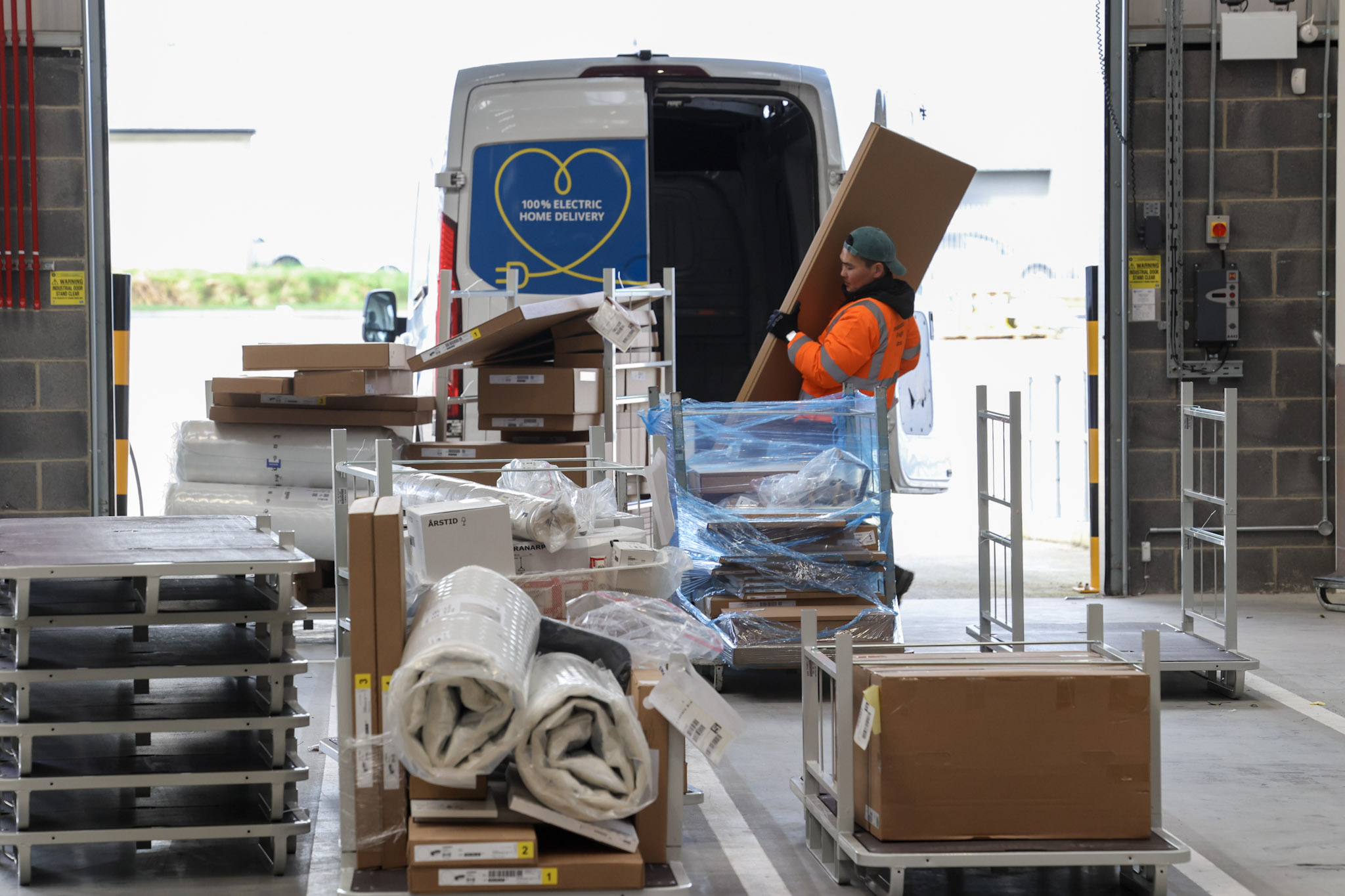Brexit poses an obstacle when it comes to cross-border sales and trade for UK SMEs, however, we still live in an increasingly borderless world compared to just a few decades ago, writes Josh Guthrie, UK Country Manager at Mollie. These borders which once hindered UK SMEs from reaching international markets are becoming obsolete, and it’s crucial that they’re primed and ready to take advantage of new growth opportunities and serve customers in other countries.
With thousands of SME ecommerce merchants in the UK, and hundreds of them new to the scene having been set up over the last few years in response to the pandemic, the region is primed for expansion.
Especially in a post-pandemic, post-Brexit world, UK SMEs are looking towards Europe to drive their growth and revenues. According to research firm Coleman Parkes, today, 63% of UK ecommerce SMEs only sell domestically, but nearly 90% claim that growing revenues from customers overseas is an important strategic priority. With this in mind, it’s important that UK SMEs have both the expert guidance and tailored, flexible tools available to them in order to reach new markets at scale and maximise success in Europe.
The importance of flexible operations and business structures
UK SMEs have been challenged by Brexit with additional costs and admin due to new VAT obligations. Import taxes can have a significant impact on SMEs, and businesses that don’t sell unique or non-commodity goods might struggle with this in particular. Therefore, in order for an SME to extend its operations across Europe and sell internationally, they need to ensure that they are set up correctly with proper tax efficiency and having the right codes in place. And there are several agencies that can help provide counsel and tackle this.
For example, for UK businesses looking to scale into the European market, the Netherlands Foreign Investment Agency (NFIA) helps UK SMEs find warehousing and staff in the Netherlands. The Netherlands is often dubbed as the gateway to the EU and can be a solid strategy for UK SMEs to set up a Euro-hub. Through setting up a warehouse in-region, UK companies looking to trade with Europe can avoid border delays or extra costs that would affect customers. The organisation has already supported nearly 5,000 companies, including Snag in the UK, from around 50 countries to establish or expand their business in the Netherlands and beyond.
Multisite support to multiply revenues
Many SME businesses build their online site with a one-size-fits-all approach, with one store that tries to address the needs of all their customers. Whilst convenient for the merchant, this strategy may not work and be poor at translating into revenue generation when it comes to targeting different market segments abroad. However, having an ecommerce platform that supports creating multiple stores, catering to different markets, communities, and verticals, can allow UK SMEs to stand a better chance of expanding their reach. Setting up websites for multiple regions in local languages where content can be unique to each site can also help improve workflow efficiency.
Of course, like any business, SMEs want to keep costs down and not have to pay premium prices for something that should be seen as standard in an increasingly globalised world. For example, regular plans from ecommerce company, Shopify, supports multisite, but merchants need to pay a premium to upgrade to Shopify Plus. There are, however, alternatives available, such as WooCommerce’s free plugin for WordPress. It supports multisite installation for a fraction of the cost. All websites created within the network are organised as subsites and the content can be unique to each site and run-in different languages. But what if you don’t speak the local language?
Let’s speak localisation
As mentioned above, there is a huge importance in having a unique site for each market, particularly in the respective local language, to drum up revenue and expand to different audiences. When it comes to supporting requests with nuance, SME merchants should consider employing someone in-country to take care of those needs. But, if this isn’t fiscally or logistically feasible for them, there are integrations available that can help. Weglot, for example, is a multilingual plugin that can integrate seamlessly with any website, adapt to existing technology, and deliver in any language to support a multilingual website.
To showcase just how powerful and effective having local websites is, UK retailer, Snag Tights, saw much success in its domestic market and wanted to start tackling the worldwide market. The company started with the English-speaking audience in the US and Australia, with Germany being the first foreign language foray. Eventually, it set up a Dutch, French and Spanish language website. As a result, the EU as a whole now accounts for a third of Snag Tight’s total sales. Having the right integration in place that supports localisation makes a huge difference and the ability to always think in a local context takes away reasons for customers not to buy from you.
The blind spot: local payment methods
There are many challenges facing UK eCommerce SMEs expanding across the continent. But one in particular is quite novel: local payment methods. UK SMEs need to strongly consider working with a payment service provider that will enable their ecommerce customers to accept local payment methods and offer transparent, flexible fees and sterling settlements.
In the Netherlands, where credit card penetration is very low, with a market share of 70%, iDEAL is the way in which most consumers pay for goods and services . In Germany, SOFORT is one of the preferred payment methods. A very high proportion of UK ecommerce business owners are totally unaware of iDEAL, SOFORT, Bancontact etc – there is no UK equivalent. This means that British SMEs expanding into Europe risk making a major misstep if they don’t make sure they can accept the payment types European customers favour.
But they can learn from those that have successfully expanded into these markets. Ernest Wright, a UK-based SME that handmakes and sells high end scissors, has seen 60% of its sales coming from outside the UK. Through having a payment service provider that supports alternative payment methods, it’s estimated that 90% of Ernest Wright’s transactions in the Netherlands are via iDEAL and 40% of its transactions in Germany use SOFORT. If the business didn’t offer these payment methods, it would be leaving significant amounts of revenue on the table.
Ecommerce is more than just about having an online store
Research firm, Coleman Parkes, states that UK SMEs have driven impressive ecommerce growth over the last year, enjoying an average of 27% ecommerce growth during 2021. 70% of UK SMEs expect that level of growth to continue into the next one to three years showing ambition to continue and increase this rate of growth. To drive this growth, UK SMEs are looking beyond their domestic markets.
But as UK SMEs look to the EU for expansion, it’s critical they consider and plan for several facets in order to achieve optimal success. UK SMEs must work with payments service providers and ecommerce partners that enable them to integrate exciting capabilities into their ecommerce technology stacks, and offer expert guidance on how to maximise their business internationally. This will increase the sophistication and attractiveness of their offer, allowing them to compete with the world’s largest ecommerce merchants on a more level playing field. There’s no doubt that third party software and capabilities in a UK SME ecommerce technology stack can make a big difference and help support UK SMEs in developing the growth mindset they need in order to compete with confidence.










